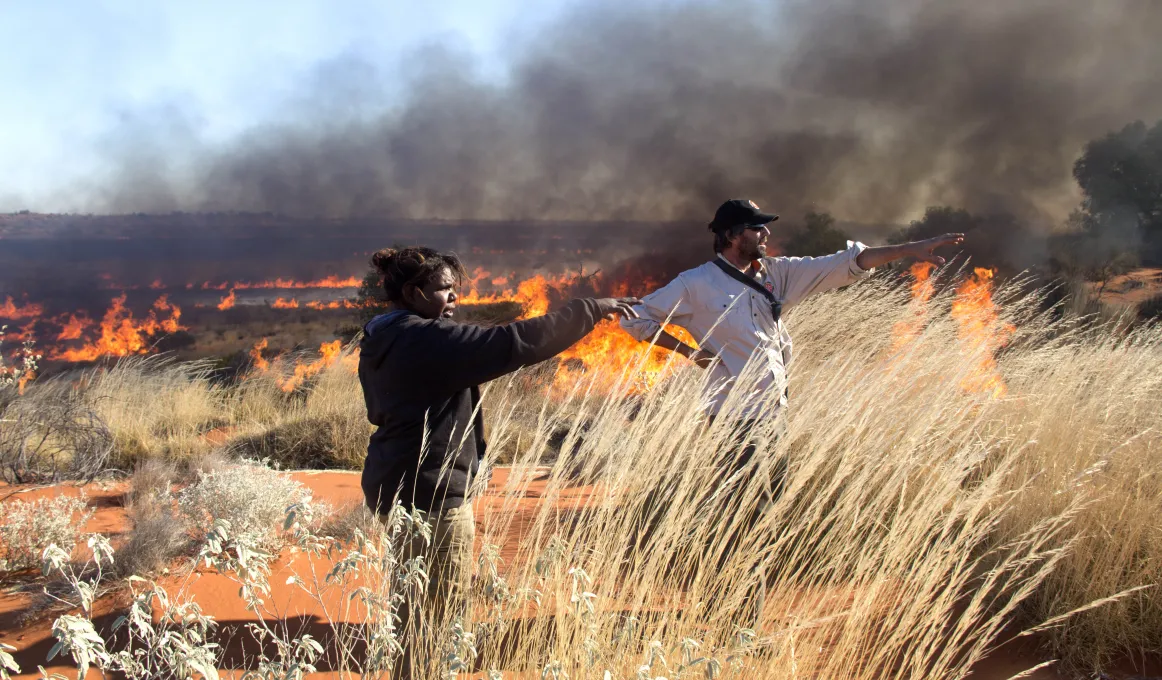A large return on investment in the Western Desert

The Kanyirninpa Jukurrpa organisation has shown that giving Martu people meaningful work can also save the government millions of dollars.
A recent study found that the Martu people in the Western Desert of Western Australia have seen transformative change through the ranger and other on-country programmes run by Kanyirninpa Jukurrpa.
The Kanyirninpa Jukurrpa organisation was established in 2005 to look after Martu culture and help build sustainable Martu communities. The organisation has shown that giving Martu people meaningful work can also save the government millions of dollars.
One of the key reasons for the ranger programme’s success identified by the study was ‘the alignment between Martu interests and those of mainstream Australia’. It’s an approach that makes sense to Martu and works for government.
Yanjimi Rowlands, a Parnngurr ranger since the start of the programme, sees a long term benefit of the programme.
“My family is working in the ranger program with me. We are making the country good for the kids—the next generation,” Yanjimi said.
“The program needs to keep going for the young kids so they can work and look after the country when we get old.”
The programme enables families to ‘work on country’ together, gives the young and old a sense of achievement, and provides an opportunity for all to remember their heritage and culture.
The independent study, conducted by Social Ventures Australia, estimates that for every dollar spent on ranger and related land-based programmes, three dollars of social benefit is returned.
Benefits include safer communities through reinforcement of traditional authority structures, meaningful employment, a reduction in alcohol related health and crime issues and lower incarceration rates.
Muuki Taylor, a Senior Cultural Advisor from the Kanyirninpa Jukurrpa, recognises further benefits of the programme.
“Kanyirninpa Jukurrpa rangers are working all over Martu country – North, South, East and West. They are looking after waterholes and burning,” Muuki said.
“The young people are learning about their grandfathers’ and grandmothers’ country. Every year, they learn more.”
This is in addition to managing Australia’s natural environment which was the main reason for the funding.
Parnngurr Ranger Edwina Booth, who has been a ranger for five years, can see the importance of the programme.
“I enjoy water testing, burning and weed control, and looking after the wildlife like the bilby and keeping them safe from foxes and cats,” Edwina said.
Find out more
This environmental work is funded by a mix of Commonwealth Working on Country and Indigenous Protected Area programmes, State, corporate and not-for-profit funding. Over the past two years there has been a shift towards non-government sources predominantly through the Martu Living Deserts Project (a unique partnership between Kanyirninpa Jukurrpa, The Nature Conservancy Australia and BHP Billiton), which made up around half of the organisation’s funds in 2014.
The Australian Government supports Indigenous communities to manage Indigenous Protected Areas (IPA) for land conservation and to create jobs for people in remote locations where there are limited employment opportunities.